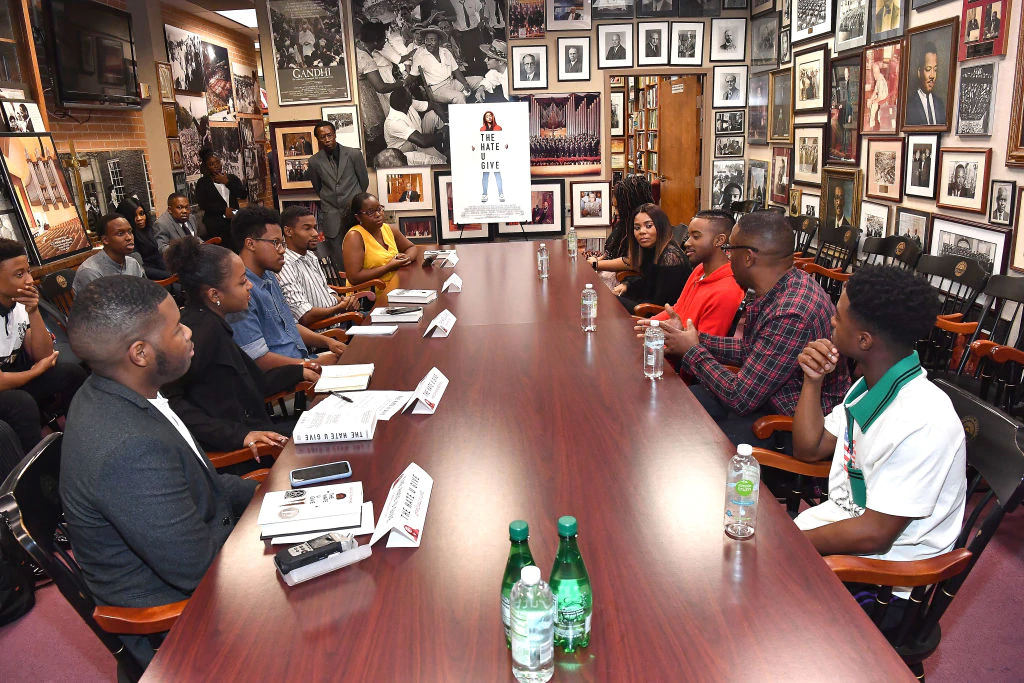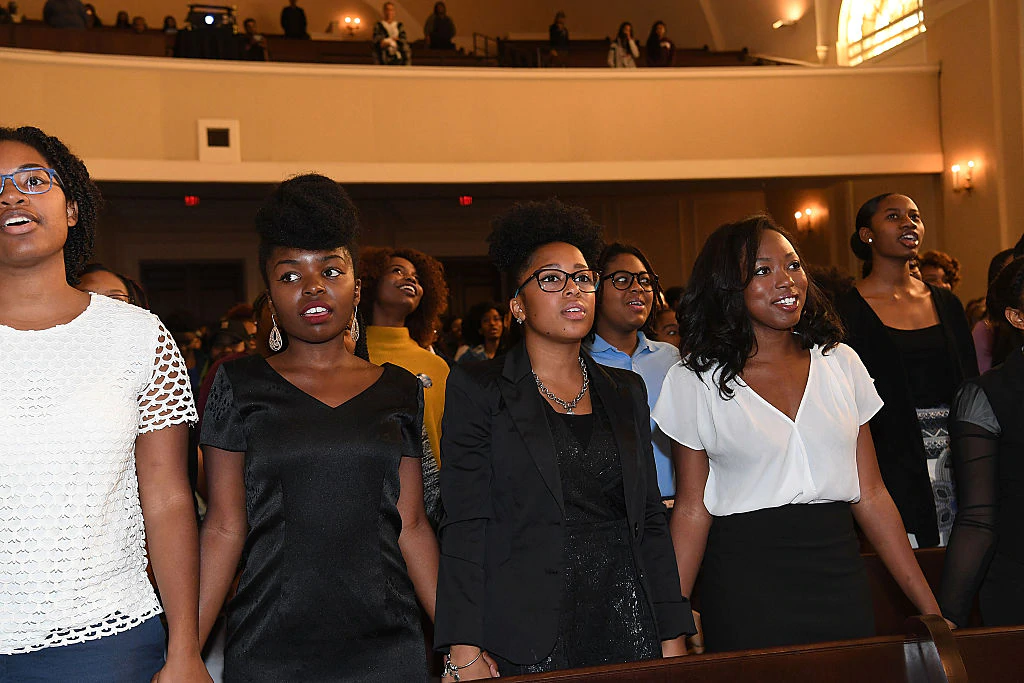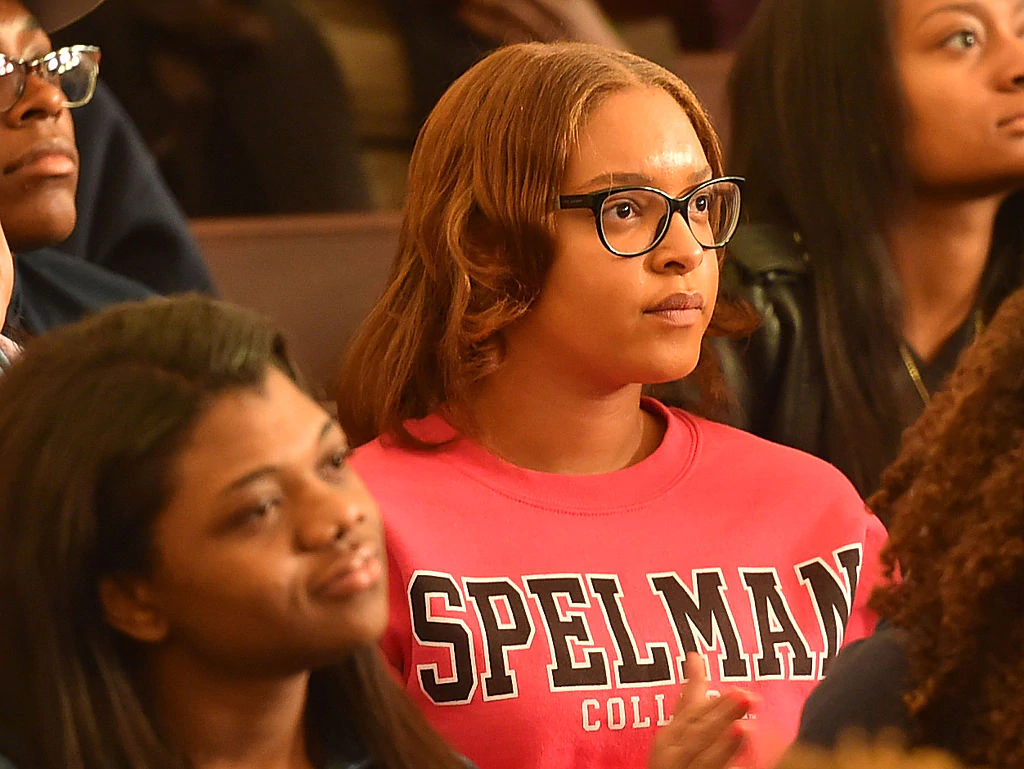[ad_1]
“Sorry, it’s hard to find a quiet place to listen,” said my student, “Tanya,” this spring as she struggled to find a place in her house with better Wi-Fi that wasn’t filled with displaced kids and parents.
Her iPad turned dark as she eventually settled on sitting in her Dad’s car outside the house because it was the only quite space she could find for an evening class—a struggle that was pretty common to many historically Black college and university students who were taking virtual classes after COVID-19 shut down campus this spring.
The virus, more specifically, the mismanagement of coronavirus, has cost thousands of Black lives, jobs, businesses and unfortunately there is no end in sight. So how do historically Black colleges and universities, who are tasked with serving some of the most vulnerable students in America, plan on dealing with the upcoming school year as the virus rages? The plans are changing and mutating almost as fast as the virus itself.
Read More: Joe Biden leading polls, thanks to Black women who went to an HBCU
Similar to the constant “inner city turmoil” and “Black families in crisis” headlines, the only time mainstream media covers HBCUs is when there’s a scandal or a tragedy. The reality is attendance and financial stability at many Black schools has been on the uptick for years. A better economy, more federal funding, lower tuition and a desire to not have neo-Nazis march through your campus every weekend has led to more black students choosing to attend HBCUs over predominantly white institutions (PWIs).
Black colleges have always been able to do more with less, producing the majority of America’s black doctors (50%) and judges (80%) despite being chronically underfunded by states and having to fill in the gaps of the lousy public schools many black students graduate from. Which is part of why coronavirus hits so hard—not because of any particular management or failing by HBCUs, but because it’s almost impossible to come up with a coordinated plan for school success when you’re caught up in a mixture of state and federal red-tape, harsh financial realities and racism.
With only a few weeks until the fall semester starts, most Black colleges are still trying to find their way, and not lose the gains they’ve made over the last few years.
David Wilson, president of Morgan State University, doesn’t agree with Maryland’s Republican governor, Larry Hogan, on every policy, but says that “the governor has been responsive to my personal outreach.” Morgan State is a residential campus of over 7,000 students in the Northern Baltimore suburbs.
When it comes to state funds, Maryland has been stingy. In May, Hogan vetoed a racial discrimination settlement that would have paid $577 million to Maryland’s four HBCUs over the next decade—money that would definitely help out during this pandemic. However, the governor has provided resources for on-campus COVID-19 testing and quickly distributed funds from the federal CARES Act (Coronavirus Aid, Relief and Economic Recovery) .
“With the CARES Act, there’s 12.6 billion for all of higher ed. There was a pot for HBCUs, which was 1.4 billion,” Wilson said over the phone. “The CARES Act has saved us and a number of HBCUs from a financial tsunami. We’re trying to be true to our values as an HBCU. We understand that what COVID-19 has done is expose the incredible disparities in the communities upon which 70% of our students are coming from.”
Most Black colleges, whether public or private, are dependent on tuition and enrollment numbers to keep the lights on. Thanks to COVID-19, there are many HBCU students who can’t afford to return to school this fall or may choose to skip a semester hoping that spring of 2021 will be safer.

Maybe these students simply don’t want to pay full or even reduced tuition for online classes. Most administrators and faculty I spoke with said students want to return to campus. Besides missing their friends, for many it’s a safer more stable environment than being at home. However, health care officials and parents are a bit more skeptical about that happening.
When I started working on this story a few weeks ago, Spelman College appeared to be a model of how HBCUs could potentially return to some semblance of normalcy. Spelman is a unique case, nestled in Atlanta’s AUC center. The private, all women’s college of about 2,100 residential students has high alumnae giving and an endowment of $390.5 million dollars to draw upon.
The average HBCU endowment is 12 million, with the highest belonging to private schools like Howard ($692.8 million), Hampton ($263.2 million), Morehouse ($145 million). The largest state HBCU endowments are Florida A&M ($113 mil) and North Carolina A&T ($63 mil).
Spelman’s initial plan had students living in single occupancy rooms, only in air-conditioned residence halls with limited on-campus interaction. Housing priority was given to incoming students and December graduates for a total of about 629 on-campus residents with the rest taking courses online.
It was risky, but many other HBCUs administrators I spoke to said Spelman had a sound plan. Unfortunately, they couldn’t plan on Georgia Governor Brian Kemp.
“Kemp doesn’t like contact tracing,” said one Georgia State health official who wished to remain anonymous. “Most other states [Florida, South Carolina] are using public health students for contact tracing. [Kemp] doesn’t want anyone touching that data. He acts like COVID is not a thing. They reject every plan, and didn’t even want to require masks until big name PWIs [Georgia Tech, Georgia State] started protesting and complaining to the Atlanta Journal Constitution.”
Consequently, COVID-19 cases in Georgia and the Atlanta metro area in particular have exploded—forcing Spelman to abandon a well thought out plan from just three weeks ago, in favor of a totally virtual campus this fall.
No matter how careful a campus may be, you can’t protect students from the outside world, and all it takes is someone coming back from J.R. Crickets with COVID-19 and the whole campus could be shut down. Mind you, Spelman, Morehouse and other private Black colleges are actually in a better situation than public schools who are at the mercy of the mad governor.
Albany Georgia , which is home to Albany State, is 73% black, and earlier this year was the per-capita coronavirus death leader not of Georgia, not of America, but the entire globe. Yet, by edict of Brian Kemp, they will re-open this fall with no COVID-19 testing, unless students are willing to take a bus or car to a public health office miles away.

The only thing harder than getting a COVID-19 test for Black people in Georgia is voting. The African American death rate from COVID-19 is three times that of whites in Georgia, but officials worry that HBCUs—like Albany State, Savannah State and Fort Valley State—run the risk of angering Kemp and getting their budgets slashed if they choose science over his Trumpian politics. Which brings us to Central State University of Ohio.
“Governor Mike DeWine (R-Ohio) has been very supportive and very active in helping to come up with the best plan,” said Jack Thomas, president of Central State University, one of only two HBCUs in Ohio (the other being Wilberforce University). “In terms of CARES ACT funding….I’m just very pleased, in what he’s done and what he’s continued to do.”
Compared to other administrators I spoke with, Thomas is adamant about re-opening this fall.
“We’re opening for everybody,” he said. “We’re a small university, about 2,100 students, and we think that we can accommodate those students.”
Central’s COVID plan features a shortened semester that begins in September and ends in November, with all returning students required to take a COVID-19 test the first week.
“But what about after the first week,” I asked. “What happens if a student goes to an off-campus party, or goes home, or goes to work, catches COVID then brings it back to their roommates or even faculty?”
“We’ll be doing training,” Thomas said without hesitation. “Training at the beginning of the semester to make sure everyone is safe and knows the proper procedures. The response team, we’re going to continue to review things as we go. If we see everybody needs to be tested again, we’re exploring our partnership with premiere hospitals here that will be working with us.”
I’ll admit I was skeptical. Keeping 2,000 students socially distanced for three months is like herding cats—if cats had cell phones, Tinder and part time jobs at Chipotle. I pressed a bit more: “How will you maintain social distancing in dorms? I mean, most campuses can’t stop meningitis from spreading how are you going to stop an airborne virus?”
“Most of our dorm rooms will be single occupancy, but when the rooms are large enough, we’ll…..what was that we were going to use?” He called to his chief of staff in the next room.
“Hospital grade. Yes, we’ll use hospital grade curtains as a divider in the dorm rooms,” he finished.
Central State is in the bind that many HBCUs are, with a meager $2.1 million endowment and drastic state budget cuts, they may not be able to afford a virtual-only campus this fall. If it’s a choice between the life of the institution and the life of your student body, what do you do?
Of the over 107 HBCUs in America serving over 200,000 students here and abroad, very few had any specific COVID fall 2020 plans on their websites, many had nothing beyond shut down announcements from the spring. They are all scrambling, some more successfully than others, to figure out what to do.
Read More: Givly App founder talks HBCU giving challenge, philanthropy in Black community
HBCUs are a microcosm of Black America. No matter how hard they try, because structural racism has limited the resources they can draw upon, random events like natural disasters, economic downturns and now a pandemic are harder to navigate.
Are HBCUs really ready for how coronavirus will affect this upcoming school year? The answer swings wildly from state to state, governor to governor and university president to university president. Nevertheless, they will make the best out of less, which for good or for ill, is something that HBCUs have always excelled at.
Dr. Jason Johnson is an associate professor of politics and journalism at Morgan State University.
Have you subscribed to theGrio’s new podcast “Dear Culture”? Download our newest episodes now!
[ad_2]
Source link


